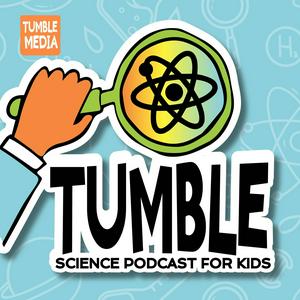In this episode, we talk to two scientists who study animal friendships, in different animals, and in different ways. We’ll hear from Karen Bales, who studies titi monkeys (AKA “fuzzy little guys”) and Annaliese Beery, who studies voles (AKA “the cutest rodents”). Get ready to discover how animal friends play and cuddle - and what they can teach us about our own friendships.
This episode was produced thanks to a generous grant from the Greater Good Science Center. Check out their website for all kinds of awesome quizzes, information, and more!
Join on Patreon to help us continue to make Tumble: patreon.com/tumblepodcast
Shop official Tumble merch: https://tumblepodcast.dashery.com/
Listen to Tumble en Español: https://pod.link/1521514886
Submit a science question: https://www.sciencepodcastforkids.com/contact


